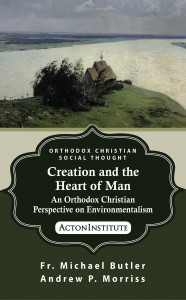
Is global warming irrational? Is it bad science? Yes, to both says Nigel Lawson, a member of the U.K. House of Lords and chairman of the Global Warming Policy Foundation. However, Lawson takes it one step further; he calls global-warming alarmism “wicked.”
In a lengthy piece at National Review Online, Lawson first details being threatened by those who insist on the “facts” of global-warming. However, he insists that – at least professionally – he has nothing to lose at this point, so he proceeds to disassemble the arguments for global-warming. Is there climate change? Indeed, says Lawson, there is:
The climate changes all the time, in different and unpredictable (certainly unpredicted) ways, and indeed often in different ways in different parts of the world. It always has done this and no doubt it always will. The issue is whether that is a cause for alarm — and not just moderate alarm. According to the alarmists it is the greatest threat facing humankind today: far worse than any of the manifold evils we see around the globe that stem from what the pope called “man’s inhumanity to man.”
He calls global-warming a “belief system” and evaluates it as such. He tackles the greenhouse effect, the question of increased CO2 in the atmosphere, whether or not the planet really is warmer (and if so, is that a problem?) and the question of whether or not we can legitimately do anything about global-warming, if it indeed exists.
By way of conclusion, Lawson also presents the case that it is all well and good for the relatively-rich Western world to pontificate about getting rid of fossil fuels, creating alternative (yet expensive) resources and technologies, but those in the developing world can’t afford to make such extreme changes.
The greatest immorality of all concerns the masses in the developing world. It is excellent that, in so many parts of the developing world — the so-called emerging economies — economic growth is now firmly on the march, as they belatedly put in place the sort of economic-policy framework that brought prosperity to the Western world. Inevitably, they already account for, and will increasingly account for, the lion’s share of global carbon emissions.
But, despite their success, there are still hundreds of millions of people in these countries in dire poverty, suffering all the ills that this brings, in terms of malnutrition, preventable disease, and premature death. Asking these countries to abandon the cheapest available sources of energy is, at the very least, asking them to delay the conquest of malnutrition, to perpetuate the incidence of preventable disease, and to increase the numbers of premature deaths.
Read “A Wicked Orthodoxy” at National Review Online.
Also, join the Acton Institute Thursday, May 8 for Creation and the Heart of Man with Fr. Michael Butler and Andrew P. Morriss, an Acton Lecture Series.

